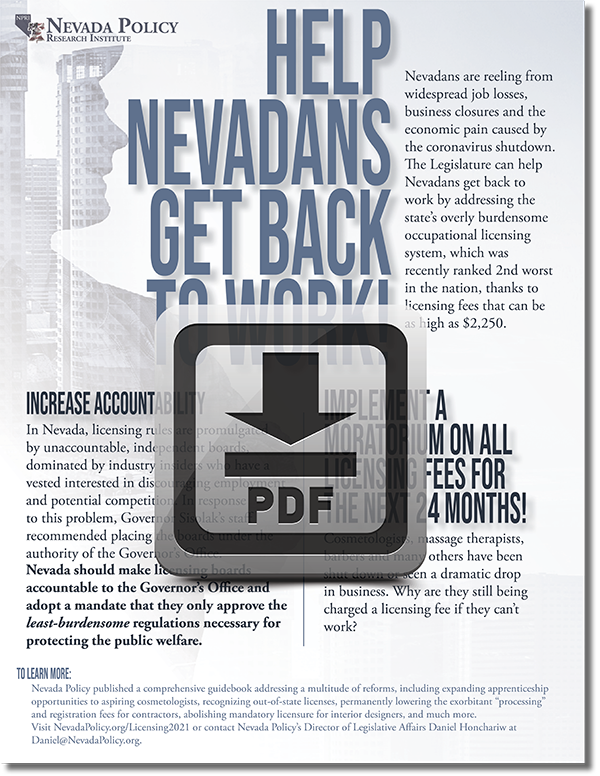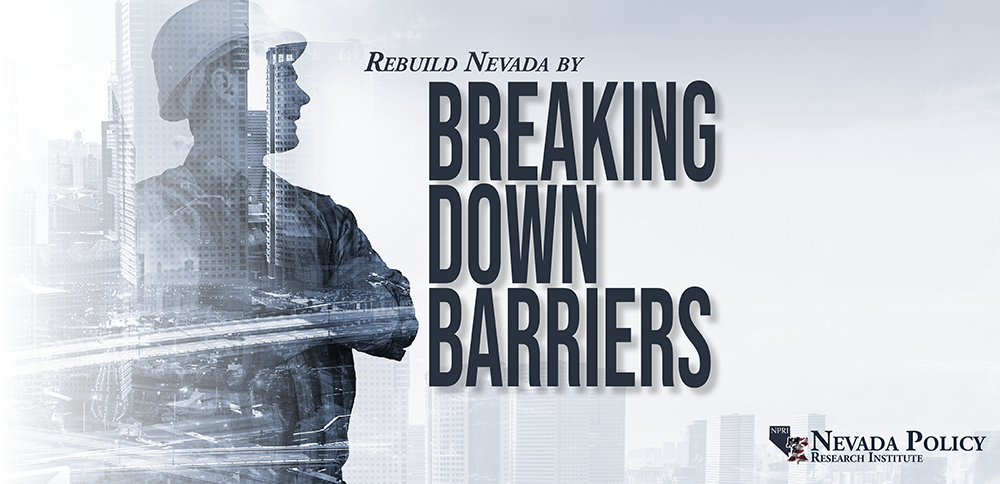
Rebuilding Nevada by Breaking Down Barriers
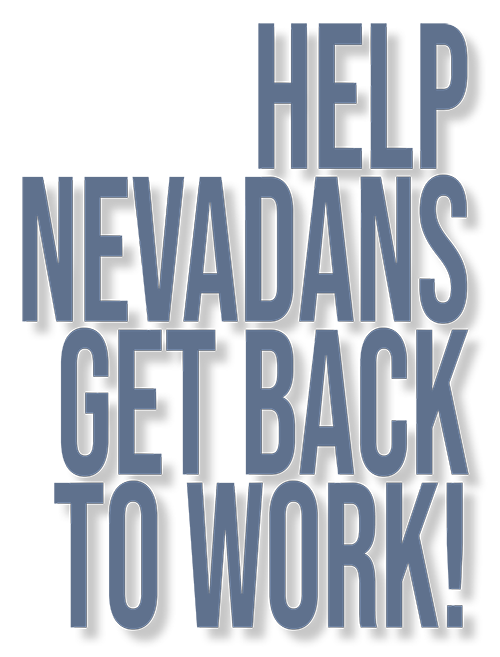 Nevadans are reeling from widespread job losses, business closures and the economic pain caused by the coronavirus shutdown. The Legislature can help Nevadans get back to work by addressing the state’s overly burdensome occupational licensing system, which was recently ranked 2nd worst in the nation, thanks to licensing fees that can be as high as $2,250.
Nevadans are reeling from widespread job losses, business closures and the economic pain caused by the coronavirus shutdown. The Legislature can help Nevadans get back to work by addressing the state’s overly burdensome occupational licensing system, which was recently ranked 2nd worst in the nation, thanks to licensing fees that can be as high as $2,250.
The 2021 legislature could take immediate steps to reforming the state’s occupational licensing system, and get Nevadans back to work, including:
Implement a moratorium on all licensing fees for 24 months
Cosmetologists, massage therapists, barbers and many others have been shut down or seen a dramatic drop in business. Why are they still being charged a licensing fee if they can’t work?
Increase accountability
In Nevada, licensing rules are promulgated by unaccountable, independent boards, dominated by industry insiders who have a vested interested in discouraging employment and potential competition. In response to this problem, Governor Sisolak’s staff recommended placing the boards under the authority of the Governor’s Office.
Nevada should make licensing boards accountable to the Governor’s Office and adopt a mandate that they only approve the least-burdensome regulations necessary for protecting the public welfare.
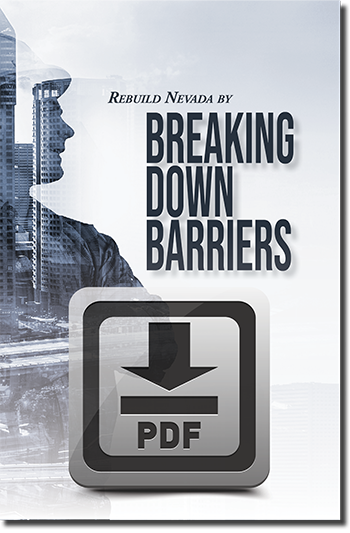 Falling short of these sweeping changes, there are still a multitude of ways the legislature can move the needle on this critical issue during a time when so many Nevadans are desperate for work.
Falling short of these sweeping changes, there are still a multitude of ways the legislature can move the needle on this critical issue during a time when so many Nevadans are desperate for work.
Breaking Down Barriers is a comprehensive guidebook addressing specific reforms — including expanding apprenticeship opportunities to aspiring cosmetologists, recognizing out-of-state licenses, permanently lowering the exorbitant “processing” and registration fees for contractors, abolishing mandatory licensure for interior designers, and much more.
Keep scrolling to read key takeaways from this report, or click here to download the complete PDF and see the targeted reforms that could be pursued in Nevada’s 2021 legislative session.
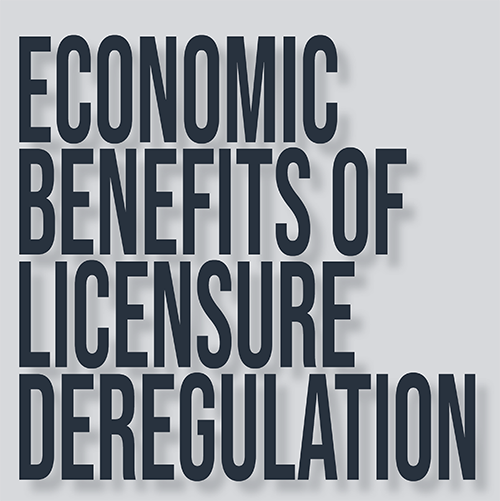
Nevada would see an 8.5 percent employment boost if these excessive restrictions were reduced
Nevada‘s onerous and burdensome occupational licensing laws are suppressing jobs for low and moderate income professions at a near national-high rate, according to a 2017 peer-reviewed analysis by the Wisconsin Institute for Law and Liberty (WILL).
In Land of the Free? 50 state study on how professional licensing laws lead to fewer jobs, WILL scholars examined the differences in licensing requirements for 10 low and moderate income professions across the 50 states.
The report found that Nevada’s licensing laws are the third-most burdensome nationwide and estimates that Nevada would see an 8.5 percent employment boost if these excessive restrictions were reduced to match the least burdensome state (Hawaii).
In raw terms, an 8.5 percent increase in Nevada’s total employment would produce tens of thousands of additional jobs.
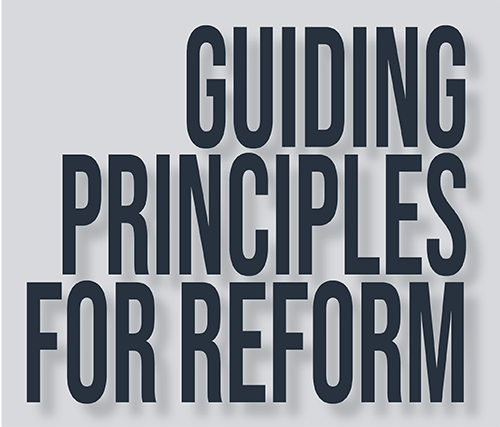
Nevada should embrace the least restrictive licensure and certification schemes necessary, if any, to promote public health and economic prosperity by implementing the following reforms:
1. Restrict licensing to professions that meet a narrow definition for ‘substantial risk of physical harm’
Lawmakers should immediately repeal all occupational licensing requirements for professions that do not pose a substantial risk of physical harm to consumers when the occupation is not performed by a trained professional. Legislation was introduced during the 2015 legislative session to accomplish this task but failed to receive a committee hearing.
2. Require all licensing boards to review and/or amend their licensure requirements regularly
Require all licensing boards to review and/or amend their licensure requirements regularly (e.g., every two years) to confirm that current requirements are the least restrictive necessary to promote public health and economic prosperity.
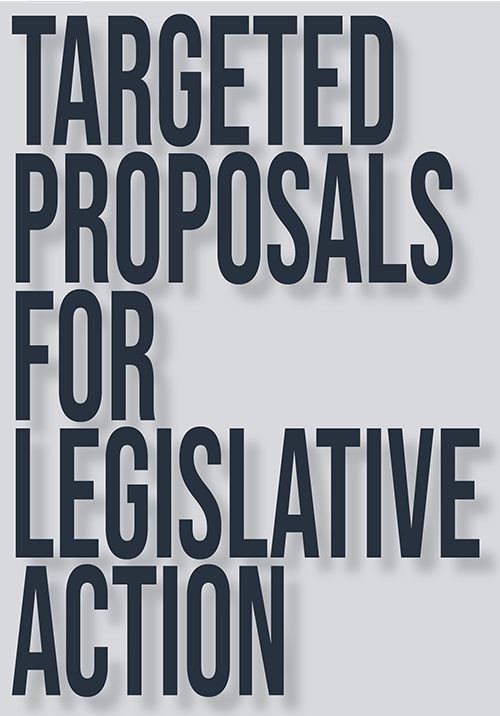
Licensing Reciprocity
Embrace state-to-state licensing reciprocity for all individuals who hold a current and valid occupational license or government certification in another state with a similar scope of practice, and who have held that license in good standing for at least one year. (Embracing the “Nurse Licensure Compact,” for example, would expedite the rate at which out-of-state nurses are credentialed to operate in Nevada.)
Contractors (NRS 624)
Contracting work includes a variety of occupations such as carpenter, HVAC, painter, pipelayer, and many others. Nevada should allow individuals to apply for contracting licenses with one year of relevant experience, rather than the current requirement of four years, reduce the statutory limits on application processing fees from $550 to $50, and biennial licensing fees from $900 to $200.
Cosmetologists, Shampoo Technologists & Hair Braiders (NRS 644A)
Lawmakers should immediately eliminate the certification scheme for shampoo technologists, reduce the required training and experience for hair braiders, reduce the amount of required schooling for cosmetologists and allow apprenticeships for qualified applicants irrespective of where they reside in the state.
Interior Designers (NRS 623)
Nevada is one of only three states (Louisiana, Florida) which requires permission from the government to perform interior-design work. The lack of licensing and/or certification schemes for this industry in the nation’s remaining 47 states strongly indicates unlicensed interior designers pose little risk, if any, to public health and safety. The certification scheme for interior designers should be eliminated entirely.
Click here to download the full report and learn more about these targeted reforms that would help get Nevadans back to work:
Click below for a one-page summary of this issue:
